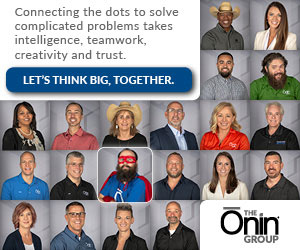Elevating team spirit helps increase engagement, performance, and productivity. The results include stronger job satisfaction, team morale, and employee attraction and retention rates.
Fortunately, you can elevate team spirit without breaking the bank. You can reap the benefits of strengthening team cohesion and positively impact your bottom line.
Definition of Team Spirit
Team spirit is the collective mindset, attitude, and culture of people who work together. This concept includes:
- The shared values, beliefs, and goals that unite and motivate the team.
- The team’s thoughts, behaviors, and emotions.
- The ability to get along with team members.
- Collaborating to attain team goals.
- Creating a sense of community within the team.
Importance of Team Spirit
Team spirit impacts members’ performance and success. For instance, members with team spirit have a shared sense of purpose. As a result, they tend to effectively communicate and collaborate to reach common goals.
Strong team spirit motivates members to perform their best. Because they are part of something bigger than themselves, they tend to be invested in their team’s success. As a result, members typically feel proud and take ownership of their work.
Healthy team spirit encourages resilience. Members tend to be equipped to overcome challenges and setbacks. Having team support helps solve problems and reduces the odds of burnout.
Methods to Enhance Team Spirit
You can choose among these strategies to build team spirit:
Lead by example
- Demonstrate a strong work ethic.
- Lead with integrity.
- Set high standards for ethical behavior.
- Show transparency and fairness in your leadership style.
- Delegate tasks.
- Understand, empathize with, and appropriately respond to your team members.
- Identify and resolve issues.
- Stay flexible and adaptable.
- Inspire and motivate your team members.
- Demonstrate pride in your work.
- Increase efficiency as you complete your tasks.
Create a shared vision
- Provide your team members with a clear direction.
- Align individual and team goals with company goals.
- Unite your team members in contributing to a common purpose.
- Support cohesion among your team members.
- Include your team members in the goal-setting process to gain buy-in.
- Periodically assess and adjust team member roles for increased effectiveness.
- Encourage ownership of work tasks, duties, and responsibilities.
- Provide the necessary resources and support for your team members to complete their work.
- Encourage team member commitment to reaching company goals.
Maintain a positive work environment
- Prioritize team member well-being.
- Encourage work-life balance.
- Remind team members to take regular breaks and use all of their paid time off.
- Promote respect and inclusion among your team.
- Foster a sense of belonging and psychological safety.
- Emphasize collaboration and support.
- Encourage camaraderie among team members.
- Acknowledge desired behaviors.
- Quickly and fairly address adverse behaviors.
- Offer opportunities for professional development.
- Recognize and reward individual and team accomplishments.
Prioritize open communication
- Schedule regular team meetings to share information, updates, and progress.
- Create a safe space for your team members to share their ideas and perspectives.
- Schedule regular feedback sessions to address concerns and solve problems.
- Model active listening so your team members feel heard and valued.
- Provide communication tools such as instant messaging for efficiency and transparency.
- Encourage constructive team member feedback.
- Support actively listening to each team member’s viewpoints.
- Resolve issues as they arise.
- Listen to and value each team member’s contributions.
- Support efficient conflict resolution within your team.
Support collaboration
- Clearly define team member roles, responsibilities, and expectations.
- Clarify how each role fits into the team.
- Assign project roles that align with each team member’s strengths.
- Encourage your team members to help each other when needed.
- Support creativity and problem-solving.
- Follow through on commitments.
- Organize team-building activities.
- Provide opportunities for team members to get to know each other outside of work.
- Encourage team member relationships.
- Create a sense of community within your team.
- Emphasize innovation for team and company growth.
Provide growth opportunities
- Offer training for team members to develop their knowledge and skills.
- Tailor learning opportunities according to each team member’s role, goals, and interests.
- Let your team members take on additional responsibilities.
- Provide opportunities for stretch assignments, job shadowing, and cross-training.
- Support your team members in sharing with others what they learn.
- Remind your team members to learn from mistakes.
- Encourage your team members to be mentored by senior employees within the company.
- Offer guidance and support for your team members to advance within the organization.
Celebrate successes
- Acknowledge individual and team accomplishments.
- Share how each team member’s contributions impacted the organization.
- Give hand-written thank-you notes to express gratitude for your team members.
- Provide a gift card, vacation day, bonus, pay increase, promotion, or another reward when appropriate.
- Organize a team lunch, dinner, party, outing, or another event.
- Motivate your team members to continuously improve performance.
Are You Looking for Employees Who Can Enhance Your Team Spirit?
Partner with The Ōnin Group to add qualified employees to your teams across the US. Contact us to get started today.






